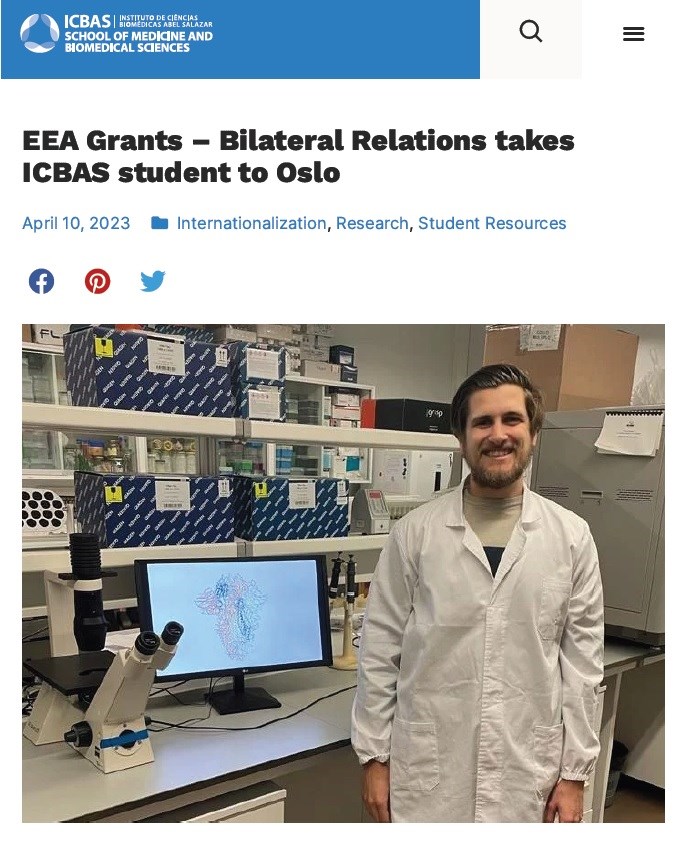COVinhib - Inactivating the SARS-CoV-2 spike protein: drug discovery in the fatty acid binding pocket
COVinhib

Promoter: Universidade do Porto - Instituto de Ciências Biomédicas Abel Salazar
Partners:Oslo University Hospital. Norway.
EEA Grants: 13 500,00 €
Total Amount: 15 000,00 €
Grace Code: PT-BI080
Programme:What did this initiative focus on?
The progression of the COVID-19 pandemic to an endemic disease shows the importance to continue the search for treatments complementing the vaccination effort. A common target for vaccines and potential drugs is the spike protein of SARS-CoV-2, critical for cell recognition, entry, and the virus life cycle. Within the spike protein, a fatty acid binding site has been confirmed, in which the crystallization of linoleic acid occupies a well-defined pocket. Importantly, the presence of linoleic acid locks the spike protein in an inactive conformation, effectively reducing the virus’ ability for cell infection.
During the last year, the Portuguese partners of this proposal have been performing high throughput virtual screen of over 300 000 compounds to select potential drugs that can mimic linoleic acid. To this day, at least 20 compounds have shown stronger binding to the Wuhan-2019 SARS-CoV-2 spike protein, when compared to linoleic acid. We expect these drugs to have affinity to most mutated forms of the spike protein, potentially inhibiting all variants of SARS-CoV-2 infection
This project aims to perform the next steps and confirm experimentally, using inhibition assays, to test if these selected compounds are effective in blocking the interaction between SARS-CoV-2 spike protein and the human receptor, ACE-2. Additionally, potential cytotoxicity of the compounds will be assessed, laying the foundation for future in vivo applications. The Norwegian partners will share knowledge and supervise on how to successfully perform the in vitro inhibition assay in addition to provide the adequate laboratory equipment for the in vitro assays.